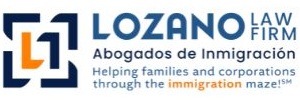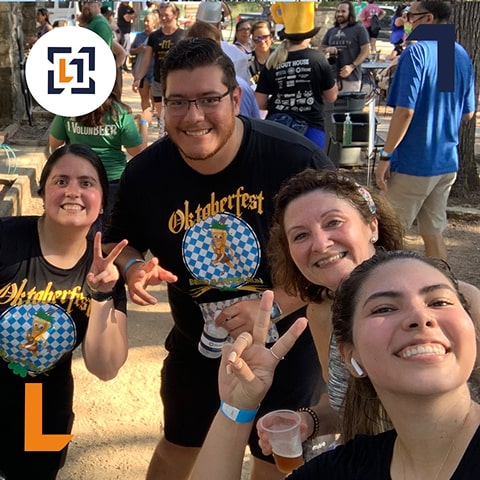Seeking safety from an abusive relationship is a courageous step. For immigrants, this path can be particularly challenging. A San Antonio VAWA attorney provides the guidance and support necessary to navigate this journey. They lead domestic abuse victims toward protection and legal residency.
The Violence Against Women Act (VAWA) and its provisions are beneficial for those affected by domestic abuse. This article explores VAWA’s protections, eligibility criteria, the self-petition process, and challenges applicants may face. It also highlights the invaluable role of an attorney in advocating for survivors’ rights.
The Meaning Of VAWA & Its Protections
The Violence Against Women Act (VAWA), enacted in 1994, addresses domestic violence, sexual assault, and stalking. It offers legal avenues for survivors to seek protection and justice. VAWA recognizes the profound impact of abuse and aims to provide comprehensive support to those affected.
VAWA covers various forms of abuse, including physical, emotional, psychological, and financial. This broad definition acknowledges that abuse manifests in multiple ways, each causing significant harm. By encompassing these types, VAWA ensures more survivors can access its protections.
Eligible applicants under VAWA may be eligible to receive benefits, such as legal residency and work authorization. These provisions empower survivors to rebuild their lives independently, free from the control of their abusers. Access to legal residency opens doors to employment, education, and community resources.
VAWA also protects confidentiality. Abusers cannot know of a survivor’s petition, which is critical in situations where contact could lead to further harm. This provision helps reduce fear and retaliation, allowing survivors to take steps toward safety without added risk.
Additionally, immigration officers and courts are better equipped to handle these cases with the seriousness and sensitivity they require. Now, learn the VAWA eligibility criteria.
Eligibility Criteria For VAWA Self-Petitioners
Understanding the eligibility criteria for VAWA self-petitioners is vital for those seeking protection under this act. The requirements focus on the relationship with the abuser, evidence of abuse, residency, and moral character.
To self-petition under VAWA, one must have a specific qualifying relationship with a U.S. citizen or lawful permanent resident abuser. These connections, including spouses or former spouses, children, and parents, form the basis for eligibility.
Demonstrating the occurrence of abuse is a critical component of the VAWA petition. Collecting documentation can be emotionally taxing, but it is vital in substantiating the claim. A San Antonio VAWA lawyer can help gather and organize these documents.
The petitioner must have lived with the abuser at some point, either in the United States or abroad. This requirement highlights that the relationship involved shared domestic life. It reinforces the connection between the abuse and the personal, lived experience of cohabitation.
Applicants are required to demonstrate good moral character. It involves showing an absence of serious criminal convictions or immigration violations. Character references and community involvement can support this aspect of the petition.
Meeting these eligibility criteria is a foundational step in the VAWA self-petition process. Each element requires careful attention and thorough documentation to build a compelling case.
Guide To The VAWA Self-Petition Process
Embarking on the VAWA self-petition process involves several critical steps. Each phase demands careful preparation and attention to detail to enhance the likelihood of a successful outcome.
Preparation Of Form I-360
The journey begins with completing Form I-360, the Petition for Amerasian, Widow(er), or Special Immigrant. This form serves as the official request for VAWA protection. Accuracy is paramount as errors can lead to delays or denials.
Applicants must provide comprehensive information about their identity, relationship to the abuser, and details of the abuse suffered.
Gathering Supporting Documentation
Supporting documentation strengthens the petition and reinforces credibility. A well-organized, persuasive documentation helps demonstrate the truth of the survivor’s experiences and the legitimacy of the qualifying relationship.
Marriage Or Birth Certificates
Official certificates are critical to establishing a familial or marital connection. A marriage certificate shows the legal union, while a birth certificate helps prove parent-child relationships. These primary documents form the foundation for demonstrating a qualifying relationship under VAWA.
Police Reports Or Medical Records
Police reports or medical records provide third-party validation of the abuse. Police documentation confirms that the incidents were serious enough to warrant law enforcement involvement. Meanwhile, medical records may reveal injuries or trauma linked to the abuse, strengthening the credibility and urgency of the survivor’s petition.
Shared Residence
Evidence of shared living arrangements—like leases, utility bills, or mail—helps demonstrate that the petitioner and abuser lived together. It supports the relationship’s authenticity and satisfies one of VAWA’s key requirements for proving cohabitation during the abusive relationship.
Good Moral Character

Collecting these materials can be challenging, but is vital for substantiating the claim. Survivors may face difficulties obtaining records due to trauma, lack of access, or ongoing fear. However, without it, the petition risks denial, making early preparation and support from trusted advocates even more critical.
Filing The Petition
Once the applicants prepare the form and supporting documents, they file the petition with the U.S. Citizenship and Immigration Services (USCIS). Applicants should use the correct filing address and include all necessary forms and fees. Retaining copies of all submissions is a good idea for personal records.
Receiving A Receipt Notice
After submission, USCIS issues a receipt notice confirming that the petition has been accepted. The agency may conduct a prima facie determination to assess if the applicant meets the basic eligibility criteria. Processing times vary, and applicants should prepare for a waiting period.
Waiting For Potential Outcomes
The petition may result in approval, a request for additional evidence, or denial. An approval grants eligibility to apply for Adjustment of Status to lawful permanent residents. If additional evidence is requested, timely and thorough responses are essential. In cases of denial, applicants may explore appeal options or alternative forms of relief.
Receiving The Decision
Reaching this final step in the process is both nerve-wracking and empowering. Receiving approval opens the door to lawful permanent residency and long-term security. A denial doesn’t end the road; survivors still have legal avenues to consider with the proper support and strategy.
Navigating the VAWA self-petition process requires resilience and meticulous attention to detail. Each step brings survivors closer to securing the protection and independence they seek. Now, learn about the challenges applicants may face.
Challenges Faced By VAWA Applicants
Pursuing a VAWA self-petition presents various challenges that can be both emotionally and procedurally demanding. Recognizing these obstacles is the first step toward overcoming them.
Emotional & Psychological Barriers
Survivors often grapple with fear of retaliation or further abuse. This apprehension can deter them from seeking help or disclosing their experiences. The emotional toll of revisiting traumatic events to gather evidence can also be overwhelming.
Legal Complexities
Understanding immigration laws and requirements can be challenging and confusing. The legal language and procedural nuances may be unfamiliar, making it difficult for applicants to navigate the system effectively without assistance.
Evidence Collection Difficulties
Obtaining sufficient proof of abuse and cohabitation poses significant challenges. Survivors may lack access to documents or fear that attempting to collect evidence could alert the abuser, increasing their risk.
Language & Cultural Barriers
Language differences and cultural stigmas can hinder access to resources and effective communication. Survivors may feel isolated or unsure of where to turn for help, exacerbating their vulnerability.
Despite these challenges, support systems and legal assistance simplify the VAWA self-petition process. These obstacles underscore the benefits of seeking professional help to ensure a comprehensive and well-supported application.
San Antonio VAWA Attorney Supports Applicants
An attorney employs several strategies to support applicants through the self-petition process. Their holistic approach addresses both the legal and personal aspects of the survivor’s journey. Self-petitioners can have confidence in the process and peace of mind that they are doing the right thing.
Giving Personalized Legal Guidance
Attorneys assess each client’s unique situation to develop effective legal strategies. This individualized approach ensures that they consider the specific circumstances and needs of the survivor, enhancing the petition’s strength.
Assisting In Evidence Collection
Attorneys can help clients gather the necessary documentation. They advise obtaining police reports, medical records, and personal affidavits. They ensure that the evidence meets USCIS standards and effectively supports the claim.
Providing Advocacy & Representation
Attorneys communicate with immigration authorities on behalf of their clients. They represent survivors in legal proceedings, articulating their cases clearly and advocating for their rights and interests throughout the process.
Giving Emotional Support & Resources
Attorneys recognize the emotional challenges and connect clients with counseling services and support groups. This network of resources aids in the healing process and provides a community of support.
Ensuring Confidentiality & Safety
Confidentiality is not just a courtesy—it’s a lifeline. An attorney implements safeguards to protect clients’ personal information. From private consultations to secure document handling, every step maintains safety and trust throughout the legal process.
These combined strategies ensure that applicants feel heard, protected, and guided. An attorney becomes more than just legal help—they are a steady presence during uncertain times. Next, look at a San Antonio VAWA law firm that embodies this mission with care and dedication.
Lozano Law Firm Guides VAWA Self-Petitioners
At Lozano Law Firm, we focus in immigration law and have built a strong reputation across San Antonio for helping survivors of abuse. We understand the emotional and physical toll these experiences take, and we treat every client with the compassion and dignity they deserve.
Each case we take on receives our full, individualized attention. We take the time to learn your story—your history, family situation, and hopes for the future. We don’t treat you like just a case number. That personalized approach builds trust throughout the VAWA process.
Our experienced team can handle VAWA cases competently We know what documentation USCIS requires and what arguments tend to resonate. We use that knowledge to build strong, compelling petitions that give survivors a better chance at gaining legal status and personal security.
We also take your privacy seriously. Every sensitive detail you share is protected, and we communicate discreetly and respectfully. You can speak freely, knowing that your safety and peace of mind are always our top priorities. If you’re ready to take the first step, we’re here to help.
VAWA provides a path to protection and freedom for immigrants suffering abuse. It acknowledges not just physical violence but emotional and financial harm, too. With its benefits, survivors can regain control over their lives and pursue a safe and stable future in the U.S.
With legal support, survivors gain an advocate who stands by their side every step of the way. Lozano Law Firm offers dependable help, rooted in compassion and care. No one should have to choose between silence and danger. We can open a door to healing and independence. For those ready to take the next step, we’re available—and it starts with just one call.























